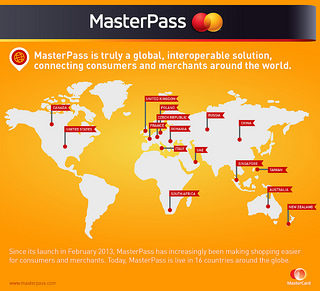 MasterCard MA Is a franchisor, processor, and advisor, for financial institutions, businesses, cardholders and merchants worldwide. Mastercard trades an average of 3.9 million shares per day, and the market cap is $96 billion.
MasterCard MA Is a franchisor, processor, and advisor, for financial institutions, businesses, cardholders and merchants worldwide. Mastercard trades an average of 3.9 million shares per day, and the market cap is $96 billion.
52 Week Price Range: $68.68 to $89.87
Forward Price To Earnings Ratio: 23.3
Price To Book: 15
The upcoming fourth-quarter earnings is highly anticipated by hopeful investors expecting an earnings growth report before the market opens on January 30, 2015. The Analyst's mean profit appraisal is presently 68 cents a share, rising 11 cents (19.3%) from 57 cents during the corresponding quarter last year.
The lowest analyst estimate this report is 62 cents per share, and the highest is 74 cents per share.
After reading a few whisper numbers, some more optimistic than others, I can see the market is expecting a beat this quarter. 36 cents is the lowest I noticed and 43 cents is the highest I've looked at so far.
Compared to Mastercard's 23.3 forward price-to-earnings ratio, Visa V has a P/E of 21.45. The P/E ratio is the number of years of earnings the company needs to pay for one share of stock. Historically, above 20 P/E's underperformed the market, in the long run while under 20 outperform.
At 1.25 Beta, the shares trade with only slightly more volatility than the overall market.
The majority of analysts believe Mastercard continues to offer a buying opportunity. 28 of the 36 analysts covering the company give a buy recommendation. Some (7) are taking a more cautious approach and rate it a hold. As of the last update I have, 1 analyst recommends selling some or all holdings.10 out of 36 analysts now rate Mastercard a strong buy down from 11 analysts a month ago. The stock is moving higher and not far from its 52-week highs, with the latest all-time high last month.
That said, the one-year return is only 3%. With a decent beat and rise in guidance, Mastercard has the legs to reach the average analyst target price for Mastercard is $96.17.
Based on option premium this week, traders and investors are expecting $4.30 change higher or lower, or about a 5% change during the next 9 days (the next expiration right after earnings are reported).
In other words, shareholders or potential investors should reasonably expect the stock to trade as low as $79.22 or as high as $87.82, and still remain within one standard deviation. If you're not already fully prepared for at least that much volatility (and there's no guarantee it won't move beyond the expected range), you want to make the necessary adjustments before the last minute.
After last quarter's results, the shares rose an impressive 10% or $7.75 from the close before the earnings release to the closing after. The closing trade before the release was $75.84 and ended at $83.59 the following day.
Looking back at the closing price before last quarter's results, until now, the shares increased a humble 10.1% or $7.68. The close before the announcement was $75.84, and currently about $83.59 as of this writing.
Investors are receiving 64 cents in dividends for a yield of 0.8%. Comparing and contrasting the history of dividend payments from companies is a great way to help understand the relative value offered. In the last five years, the average dividend yield was 0.30%. This compares to Visa with a lower yield at 0.80% and a five-year historical yield of 0.70%.
Leave a Comment
You must be logged in to post a comment.